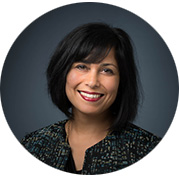Spontaneous coronary artery dissection (SCAD) clinic
Overview
The SCAD clinic provides comprehensive care to patients who have experienced spontaneous coronary artery dissection (SCAD), with a focus on educating patients, families and other health-care providers on how to improve quality of life and prevent hospitalizations.
Our clinic provides:
- Evaluation and treatment of SCAD
- Coordination of long-term follow-up care
- Access to specialists in nephrology, rheumatology, neurology, vascular surgery, medical imaging, cardiac rehabilitation, and behavioural psychology, as needed.
- Education about SCAD and lifestyle changes
As part of an internationally-recognized organization in research and education, we are conducting research to better understand and treat SCAD, including a 10-year project examining long-term outcomes.
What we treat
Spontaneous coronary artery dissection (SCAD) is an uncommon, underdiagnosed emergency condition that occurs when a coronary artery tears or bleeding occurs within the coronary artery wall. SCAD can partially or completely block blood supply to the heart, causing acute myocardial infarction (heart attack). This is very different than a traditional heart attack caused by "cholesterol plaque" build-up or plaque rupture.
Who is at risk?
SCAD most commonly affects women in their 40s and 50s, although sometimes it can occur in men (at any age). It causes 1-4 per cent of heart attacks overall, and up to 35 per cent of heart attacks in women 50 years of age and younger.
People developing SCAD don't have traditional cardiovascular risk factors, but may have other conditions such as the peri-partum state, fibromuscular dysplasia, and certain collagen vascular diseases.
Patient and family education
Visit our online centre for more resources and information about heart and vascular disease, including tips on healthy living, treatments and procedures, and videos:
View all heart information and resources »
Watch the Speaker Series heart health talk »
Our care team

Dr. Mina Madan
Medical Director, SCAD Clinic
Interventional Cardiologist, Schulich Heart Centre
Associate Professor of Medicine, University of Toronto
Contact us
Phone: 416-480-4119
Bayview Campus
Sunnybrook Health Sciences Centre
A-wing, 2nd floor, Room A253
Referrals
Our clinic requires a physician referral. Please fill out the referral form and fax to 416-480-4657.







